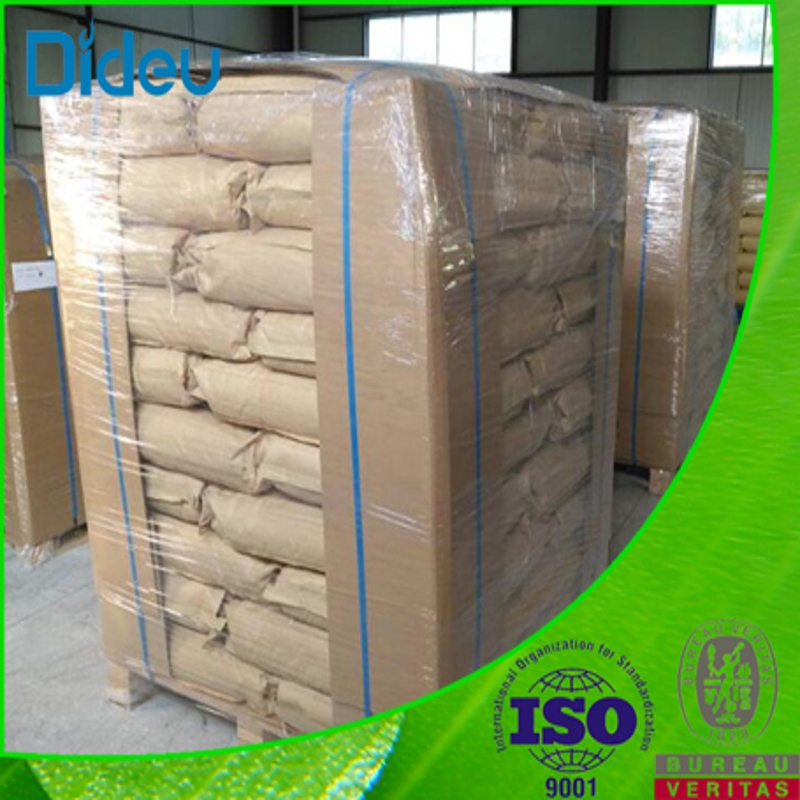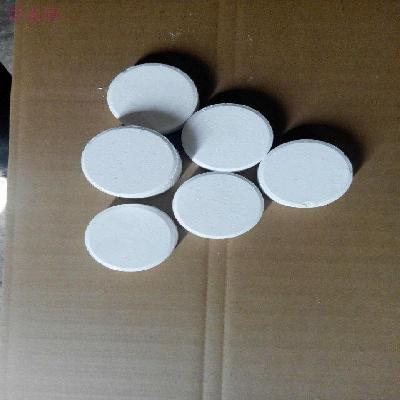-
Categories
-
Pharmaceutical Intermediates
-
Active Pharmaceutical Ingredients
-
Food Additives
- Industrial Coatings
- Agrochemicals
- Dyes and Pigments
- Surfactant
- Flavors and Fragrances
- Chemical Reagents
- Catalyst and Auxiliary
- Natural Products
- Inorganic Chemistry
-
Organic Chemistry
-
Biochemical Engineering
- Analytical Chemistry
- Cosmetic Ingredient
-
Pharmaceutical Intermediates
Promotion
ECHEMI Mall
Wholesale
Weekly Price
Exhibition
News
-
Trade Service
For medical professionals only
Why is it so important for family members to treat HP? What are the advantages of high-dose dual regimens? How to choose PPI? And listen to what Professor Du Yiqi said
.
Helicobacter pylori (Hp) infection is related to the incidence of digestive tract diseases and diseases of multiple systems throughout the body, and its infection rate is high and pathogenic, threatening people's health [1].
Hp is mainly transmitted by oral route, and household transmission is one of the main modes of infection [2].
In this regard, the Expert Consensus on the Prevention, Control and Management of Helicobacter Pylori Infection in Chinese Households (hereinafter referred to as the "Family Consensus") pointed out that the common treatment of family members infected with Hp will help reduce reinfection after eradication, thereby effectively interrupting the intra-family transmission of Hp [2].
However, in recent years, antibiotic resistance has been increasing year by year, and the Hp eradication rate in traditional protocols has been declining, which has become a thorny clinical problem
.
In this context, the proposal of high-dose dual regimen brings new options
for Hp eradication therapy.
Therefore, the medical community specially invited Professor Du Yiqi of Changhai Hospital of Naval Military Medical University to share the importance of joint treatment of Hp infection by family members, the existing programs of Hp eradication and the characteristics and advantages of Hp eradication dual therapy, in order to provide suggestions and inspiration
for medical workers in related fields.
Taking families as the prevention and control of Hp infection, early screening, early prevention and early eradication
"Family Consensus" is the first consensus opinion on the prevention, control and management of Hp infection in residential households in China[2].
Professor Du Yiqi said: "The HP eradication strategies used in China and abroad were 'test and treat' or 'screening and treatment', which were mainly aimed at individual
patients.
In clinical practice, the eradication strategy of 'detection and treatment' is not suitable for areas with high Hp infection rate and high incidence of gastric cancer, which is inconsistent
with China's national conditions.
Although the strategy of 'screening and treatment' is more in line with the actual situation in China, it will inevitably cause reinfection of the population in the long process of implementing screening [3].
Therefore, on the basis of these two strategies, the Family Consensus puts forward the concept of family prevention and control of Hp, which is a major breakthrough in the formulation of Hp eradication strategy [2].
"
In the past decade, the global eradication recurrence rate of Hp has been on the rise
.
Family members living together may cause the spread of Hp between family members due to similar living habits, sharing living utensils, close contact, etc.
, and eventually bring about the result of Hp eradication failure [2].
The results of a domestic study on Hp infection patients treated alone and family members showed that the cumulative recurrence rate of a single patient after 24 months of treatment was 19.
7%, while the cumulative recurrence rate of 24 months of family treatment was only 7.
4% [4].
A 2021 meta-analysis showed that home-based Hp therapy had a higher eradication rate (93.
4 versus 83.
2 percent) and a lower recurrence rate (6.
0 versus 9.
1 percent) compared with treating a single infected person [5].
"Preventing and reducing Hp transmission within families will help reduce the risk of
gastric mucosal lesions and gastric cancer.
" Professor Du added, "Hp infection can form a 'Correa carcinogenesis pattern', that is, chronic gastritis-atrophy-intestinalization-intraepithelial neoplasia-gastric cancer development process [6]
.
" Early eradication of Hp can partially reverse the evolution of gastric cancer, and the earlier you intervene, the better the risk reduction effect of gastric cancer
.
That is to say, in this pattern of disease development, the sooner Hp is eradicated, the greater the benefit
.
Therefore, the Family Consensus strongly recommends 'co-treatment of Hp infected family members', while emphasizing that 'the concept of Hp eradication at first treatment applies to the treatment of Hp infection in family members'
.
”
, why does the Family Consensus attach so much importance to the concept of Hp eradication for the first time? This is because the success of the first eradication will affect the outcome
of Hp treatment.
Failure of the first eradication can easily lead to the development of bacterial resistance, which reduces the range of drug options for retreatment [2].
Therefore, the Family Consensus states that "Hp should be successfully eradicated as soon as possible at the time of first treatment"
.
This also requires clinicians to consider more carefully when choosing an Hp first eradication program
.
"At present, the more commonly used Hp eradication program in China is the fourth, fifth and sixth national Hp diagnosis and treatment consensus recommended programs to be promulgated this year, including non-bismuth quadruple program, bismuth quadruple program, triple regimen and high-dose dual program
.
" Professor Du said
.
In the 90s of the last century, the triple program achieved an HP eradication rate
of 90% or more.
However, in recent years, with the gradual increase of antibiotic resistance, the eradication rate has gradually decreased to less than 80% [7].
Because its usage rate has been decreasing year by year, it is no longer recommended
by the guide.
The bismuth-containing quadruple regimen has been the mainstream eradication program in the past decade and is also the first-line treatment
recommended by domestic and foreign guidelines.
However, the variety of medications used in this regimen is high, the cost of treatment is high, adverse reactions are correspondingly increased, and patient compliance is also affected
.
Studies have shown that the use of bismuth-containing eradication regimens has significantly increased the incidence of melena, and taking bismuth for more than one month also increases the risk of gastrointestinal adverse events such as diarrhea and nausea and vomiting [8].
In addition, the protocol, which requires the use of two antibiotics, will face the same dilemma as the triple regimen - antibiotic resistance
.
This results in few antibiotics available for remediation after the failure of the first eradication therapy for Hp [7].
"Therefore, further optimization
needs to be proposed in the clinic.
Professor Du said, "The high-dose duo regimen is a protocol
that has emerged in recent years.
As early as 1989, the dual regimen was first proposed, but because the drugs used at that time were all standard doses, it did not show a clear advantage in Hp eradication [9].
It was not until 1995 that a randomized controlled trial (RCT) study using high-dose omeprazole plus amoxicillin achieved a Hp eradication rate of more than 90 percent [10], which re-approved
the 'upgraded' dual regimen.
”
High-dose dual regimens refer to double-dose proton-pump inhibitors (PPIs) and amoxicillin ≥3 g daily (given in 3 or more divided doses), and the current recommended course of treatment is 14 days
.
"When it comes to Hp eradication, high-dose dual regimens have their own unique advantages
.
" Professor Du emphasized
.
In terms of eradication efficacy, the high-dose dual regimen has a eradication rate
similar to that recommended by the guidelines.
In a meta-analysis of 829 patients with Hp infection from four RCTs, there was no significant difference in the intention-to-use analysis (ITT) with a high-dose dual Hp eradication rate of 85.
5% and 87.
2% with bismuth-containing quadruple therapy (RR 1.
01, 95% CI: 0.
96-1.
06; P = 0.
63) [11].
In terms of adverse reactions and safety, there are only two drugs in the high-dose dual regimen, which reduces the adverse reactions caused by the superposition of multiple drugs without producing gastrointestinal symptoms such as melena and nausea [11].
In terms of patient compliance, the high-dose dual regimen is simple, which can meet the importance of correct medication for patients with different levels of medical cognition, so that patients of different ages can adhere to medication [12].
In terms of accessibility, both drugs used in the high-dose dual regimen are available in hospitals at all levels, and the reduction in the variety of drugs has also reduced patient care costs [12].
"Of course, the high-dose dual regimen also has its problems, because the current antibiotic uses amoxicillin, so it is necessary to pay attention to penicillin skin test before treatment, and for patients with penicillin allergy, this regimen cannot be used for eradication therapy
.
However, in general, in Hp eradication therapy, the high-dose dual regimen has the characteristics of simple program, high eradication rate, few adverse reactions and high patient compliance, so this therapy may become the mainstream program
of Hp eradication therapy in the future.
Professor Du concluded
.
PPI, the once ignored "ace adjuvant" in Hp eradication, usually believes that the eradication effect of high-dose dual regimen benefits from the bactericidal ability of low-drug resistant amoxicillin, and in fact,
the acid-inhibiting effect of PPI is also an important factor
that "contributes".
"PPI has also been used in the bismuth quadruple regimen in the past, but due to the large number of drugs, the effect of gastric acid suppression on Hp eradication has not attracted enough attention
.
There are only two drugs in the high-dose dual regimen, which makes the role of PPIs more prominent
.
Professor Du explained
.
An increase in gastric pH can inhibit urease activity, reduce Hp metabolic activity, and affect its colonization
of the gastric mucosa.
When the pH value in the stomach is 6~8, Hp enters a replication state, and the proliferating Hp is sensitive to antibiotics such as amoxicillin, clarithromycin, etc.
, and is easy to be killed; When the pH value in the stomach is 4~6, Hp can survive, but can not proliferate, in a dormant state, Hp in this state is not easy to be killed by antibiotics, once antibiotics are stopped, these bacteria will regrow and multiply
in the stomach.
PPI can raise the pH of the stomach to ≥6, so that the Hp in the stomach is in the active growth stage, sensitive to antibiotics, and easy to be completely eradicated [13].
Hp parasitizes in the epithelial and mucus layers
of the stomach.
Antibiotics must penetrate the mucus layer and reach a certain concentration to be effective in sterilization
.
In low pH environments, the activity of antibiotics and their ability to penetrate the mucus layer are reduced
.
PPI can increase the concentration of antibiotics at the Hp colonization site by increasing the pH in the stomach and increasing the permeability of antibiotics to the mucus layer
.
Most antibiotics are not resistant to acidic environments and degrade
easily in the stomach.
Acid suppression therapy increases gastric pH, prolongs the half-life of antibiotics, reduces the minimum inhibitory concentration (MIC), and increases its bioavailability, thereby enhancing its Hp killing effect [14,15].
In addition, the higher the pH in the stomach, the lower the pepsin activity and the less
the breakdown of anti-Hp IgA.
Increased anti-Hp IgA content and enhanced autoimmune ability can promote the eradication of Hp [16].
The new generation of PPI is effective and long-lasting acid suppression, escorting
Hp eradication Speaking about the selection of PPIs in the clinic, Professor Du said, "The selection of PPIs in the clinic should pay attention to the goal of acid suppression by increasing the frequency of use or dosage of PPIs; In addition, pay attention to the metabolic type of CYP2C19, Chinese the metabolic type is mostly fast or medium metabolism, which means that PPI affected by the diversity of the gene is easily metabolized after entering the body, for this type of population, the use of drugs without CYP2C19, with a stronger acid-suppressing effect, will increase the eradication rate of Hp, such as the second-generation PPI esomeprazole [17].
"
As a classic PPI preparation, esomeprazole has the characteristics of
fast onset and good acid inhibition.
Professor Du added, "Esomeprazole is a weak basic drug that concentrates and converts to the active form in the high-acid environment of parietal cell acid microtubules, and rapidly binds to the sulfhydryl group of cysteine on H+/K+-ATPase to form disulfide bonds, thereby inactivating the enzyme and specifically inhibiting H in parietal cells.
" +/K+-ATPase activity thereby inhibiting gastric acid secretion
.
Esomeprazole has a long duration of continuous action, does not depend on the CYP2C19 metabolic pathway, and is not affected by the polymorphism of this gene and reduces the acid suppression effect [18,19].
Finally, Professor Du concluded: "In short, the strong acid-suppressing ability of esomeprazole provides a better 'eradication environment'
for the treatment of Hp infection.
" At the same time, due to its high drug availability and easy access to hospitals at all levels in China, the high-dose dual regimen based on esomeprazole is more universal and promotional, and has become a new choice
for Hp eradication of infection.
Expert
profile: Professor Du Yiqi
- Deputy Director of the Department of Gastroenterology, Changhai Hospital, Naval Military Medical University
- Chief physician, professor, doctoral supervisor
- Deputy leader of the pancreatics group of the Chinese Society of Gastroenterology
- Deputy leader of the enteroscopy group of the Chinese Society of Digestive Endoscopy
- Vice Chairman of the Pancreatic Professional Committee of the Chinese Medical Doctor Association
- Vice Chairman of Shanghai Society of Gastroenterology
Best practice & research Clinical gastroenterology, 2015, 29(6): 895-905 [2]Ding SZ,et al.
Gut.
2022 Feb; 71(2):238-253.
[3] Du Yiqi.
Journal of Naval Medical University: 1-6[2022-12-02] [4] Jiang Chenglin, et al.
Journal of Clinical Gastroenterology,2014,26(04):203-205 [5]Zhao JB,et al.
Helicobacter.
2021 Jun; 26(3):e12793.
[6] National Clinical Research Center for Digestive Diseases (Shanghai), et al.
Chinese Journal of Digestion,2020,40(11):731-741 [7] Han Yingying, et al.
Chinese Journal of Digestion,2022,42(02):137-140 [8] Zhang Xiuen, et al.
Massage and Rehabilitation Medicine,2022,13(12):65-68 [9]Unge P,et al.
Scand J Gastroenterol Suppl.
1989; 167:49–54.
[10]Bayerdörffer E,et al.
Gastroenterology.
1995; 108:1412–1417.
[11]Yang X,et al.
Medicine (Baltimore), 2019, 98(7):e14396.
[12] Pastoral, et al.
General Nursing, 2021, 19(18): 2481-2485 [13] Zhang Guoxin.
Chinese Journal of Digestion,2016,36(2):137-138 [14]ErahPO, et al.
J Antimicrob Chemother,1997,39(1):5-12.
[15]GoddardAF,et al.
Aliment Pharmacol Ther, 1996,10(1):105-109.
[16]FanHY, et al.
Exp Ther Med, 2013,5(3):912-916.
[17] ZHANG Xin, et al.
Chinese Medical Journal,2014,49(02):22-24 [18] Xu Tao.
Chinese Journal of Modern Drug Application,2015,9(12):257-258 [19] Li Xiaowen, et al.
Chinese Journal of New Drug and Clinical Practice,2013,32(10):775-779
Where to see more clinical knowledge of digestive liver disease?
Come to the "doctor's station" and take a look 👇
This information is for medical and scientific reference only and is not recommended for use in any manner inconsistent with the prescribed information approved in your country.







